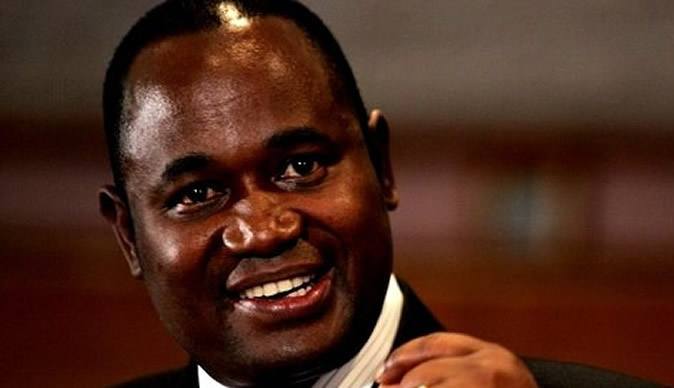
WHEN Gideon Gono took over as Reserve Bank of Zimbabwe (RBZ) governor in December 2003, he set himself on a path no other central bank chief had travelled before in the country’s history.
REPORT BY NDAMU SANDU
He started by boldly declaring he would take “full responsibility for any weaknesses in the roadmap, but would not take any credit for whatever positive impact” his monetary policies would have on the well-being of the economy.
Who could doubt the man credited with turning around the fortunes of a bank from collapse, after the government moved in to rescue the then Bank of Credit and Commerce Zimbabwe? The bank was to be renamed the Commercial Bank of Zimbabwe (now CBZ), which is currently the biggest bank by deposits.
So charismatic was the central bank chief that his monetary policy presentations, beamed live on national radio and television, used to be sold-out, with the “who-is-who” in government, in attendance.
Gono seemed to have a solution to all Zimbabwe’s economic problems and the RBZ soon started printing money as the panacea to the woes.
Gono would straddle across ministries and through engaging in activities outside national budget (quasi-fiscal), the central bank acted like a super ministry overseeing Cabinet.
To justify his supra-ministerial roles and quasi-fiscal activities, he would not end his presentations without saying, “extraordinary circumstances call for extraordinary measures”.
- Chamisa under fire over US$120K donation
- Mavhunga puts DeMbare into Chibuku quarterfinals
- Pension funds bet on Cabora Bassa oilfields
- Councils defy govt fire tender directive
Keep Reading
Government departments, parastatals and ministries would turn to him for support.
When then Finance minister Herbert Murerwa announced in his 2007 National Budget presentation that quasi-fiscal activities would be phased-out and all expenditures had to go through budgetary processes, all hell broke loose as he had ruffled some king-sized feathers.
A week later, President Robert Mugabe responded to Murerwa’s budget statement blasting what he called “bookish economics”.
“They have this word they like using; quasi, quasi. But I tell them that this is the expenditure that we need. We are under sanctions, and there is no room for the type of bookish economics we have at the Ministry of Finance,” he said.
It was no surprise that Murerwa was jobless after a mini-Cabinet reshuffle a few months later, and Gono had the freedom to print as much quintillions as he wanted, pushing Zimbabwe’s inflation rate to 231 million %!
Fast forward to June 2013
Gono is now a pale shadow of the all-powerful governor who, while presenting monetary policy statements, once drew a thunderous applause when he said: Gideon Gono “it’s time for the governor to drink some water,” before taking a gulp from a glass that would be placed in front of him.
None of those fawning business and Zanu PF leaders are still taking notice of his presence at the RBZ, five months before the end of his second and final term at RBZ.
Even guards from the police protection unit — a department with the Zimbabwe Republic Police in charge of providing security to VIPs and their residences — have deserted his residence in Borrowdale. They were withdrawn while he was away on a business trip, without explanation.
Concerted pleas for their reinstatement drew blanks. Ironically, only a few years back, Gono would inspect the police guard of honour and officiate at pass out parades where police chiefs would plead with him for RBZ handouts which included VIP cars and financial support.
Gono’s position appeared to have started to weaken significantly in Zanu PF circles when he clashed with Youth Development, Indigenisation and Empowerment minister Saviour Kasukuwere over the implementation of the indigenisation legislation, especially on the banking sector.
Gono argued that the sector was already indigenised and proposed a supply side model, which he said would benefit locals more than the equity approach. On the other hand, Kasukuwere insisted foreign banks should cede 51% ownership and those unhappy with the process should pack and go.
Gono’s views on indigenisation, analysts say, were ill-timed, considering that Zanu PF wanted to use it as a trump card during elections.
“He has assumed the role of protector of foreign banks and tried to appear to be going against politicians who appointed him in the first place,” a banking executive said.
Independent economic analyst John Robertson told The Standard that Gono had been the biggest casualty of dollarisation as the central bank lost its ability to print money.
“He derived powers through exercising his authority over currency. Now that the currency is no longer Zimbabwean, his authority has been diminished,” Robertson said.
GONO HAS SERVED HIS PURPOSE — NKOMO
Dumisani Nkomo of Habakkuk Trust said Gono was used by Zanu PF when he was still relevant.
Nkomo said the late national heroes Chenjerai Hunzvi and Border Gezi, former Information minister Jonathan Moyo and War veterans’ leader, Jabulani Sibanda — had at one time like Gono become untouchables.
“At any given time, there is an individual who wields so much power. He [Gono] was there to serve a particular purpose during the Zimbabwean dollar era,” Nkomo said.
Gono is credited with rescuing Zimbabwe from expulsion from the International Monetary Fund by mobilising US$120 million to repay part of the debt, a week before the global lender’s executive board was to meet to decide the country’s future.
He has managed to weather the storm from the two MDCs who seem to have dropped the “Gono must go” hymn.
“He had his time and his reign was a colossus with the feet of clay,” one banker remarked last week.
His former advisor, Munyaradzi Kereke, has also accused Gono of corrupt practices during his reign, a charge Gono strongly denies.
Unable to influence the economy with monetary policy statements and his tenure coming to an end on November 30, Gono now cuts a lonely figure with friends deserting him.
He is fortunate in that President Robert Mugabe is backing him — at least for now.









